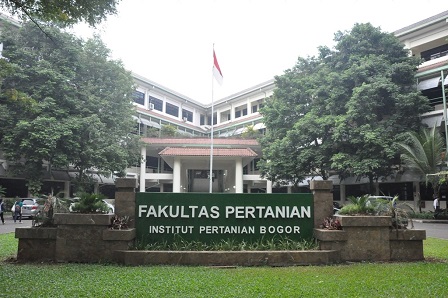
Horticulture As A Source Of Promising Farmers’ Income
Horticulture As A Source Of Promising Farmers’ Income
Monthly Discussion-2 2011
Indonesia has a great potential source of horticulture commodity development. This commodity plays an important role, not only in providing and creating employment, even income, and poverty solution, but also in strengthening Indonesian food security and well being. It can also provide nutritious food, herbal medicine, and esthetics, increase economic competitive power, and obtain foreign exchange through export activities. Therefore, horticulture is an important component from “ Expected Food pattern”, that must be available any time in a sufficient amount, good quality, safe consumption, reasonable price, and it must be accessible to any level of community.
Indonesian people that are consumers in their own country are a potential market. From year to year there is a tendency that the number increases in line with the increase of their living standard and their welfare and the number of population. Business in horticulture (fruits, vegetables, ornamental plants, biopharma plants) is a source of income for the people and farmers, whether they are of small-scale, medium scale, or big scale, because it is supported by superiority in its selling price, type variety, availability of land resource, and technology, and increasing domestic and international markets.
Horticulture development in a new paradigm does not only focus on increasing production, productivity, an efficiency (growth), but iit also deals with strategic issues such as quality, food security, even income, and poverty solution (equity and welfare), and reservation of enviroenment in order to increase competitive power and a wider market access and also to realize sustainable development. According to Renstra Kementerian Pertanian 2010-2014, the policy and strategies to develop horticulture is carried out through 6 pilar approaches of horticulture development that is carried out simultaneously and integratively among the headquarter, provinces, and regencies/cities. The six pillars of horticulture development are as follows; (1) regional and rural development, (2) supply chain management, (3) GAP and SOP application, (4) institutional development, (5) integrated horticulture investment, and (6) improvement of consumption and export. The focus of applying the six pillars of horticulture development is developing and completion of the areas that have structured supply chain management.
Then in order to make sure the legal assurance in carrying out the establishment and development of horticulture, Law No 13/2010 about Horticulture was issued. This law exists as a demand since there is no regulation that specifically handles horitulcture commodities. The existing regulations are not yet able to carry out the establishment and development of horticulture. The impact that is expected from the excistence of the Horticulture Law in establishing and developing horticulture in Indonesia is that the horticulture commodities can grow and develop optimally. This condition hopefully can increase production, productivity, quality, added value, competitive power, market segment, foreign exchange, health, welfare, prosperity, and last but not least it can become independent in its own country.
Horticulture development in Indonesia still faces many problems, especially vegetable and fruit commodities, in terms of the production process and system, institution, processing, marketing, and trading policy. These classic problems that have not been well taken care of until now are those related to small-scale business and monoculture that make it tend to be inefficient, low in capital access, technology, information, and market segment. Its weak relation to industries upstream and downstream and insufficient quantity, quality, and continuity are also the problems that need attention. Other problems are limited highland and the inadequate condition of regional and rural infrastructure, some imported vegetable and fruit commodities, and environmental health problem. The last but not least problems in developing these commodities are the human resource condition that is still low, the farmers’ institution that is not developed and does not function well, the consumer’s preference that cannot be met by farmers, fruit competition that is still unsatisfactory, the research result supports that are not many, and difficulties in distribution and application.
Darmaga, 10 October 2011
The formulation Team and Editors of SUARA DARMAGA
Andrea Emma P
Jumadi
Bonjok Istiaji
Discussion implementation
The second monthly discussion of “Suara Darmaga”, the Faculty of Agriculture IPB, was carried out on Monday, 10 October 2-11, in the Senate Court Room, the Faculty of Agriculture IPB, held at 9.30 AM until 12.00. The theme proposed in this discussion was “Policy and Strategy to Develop Horticulture in Indonesia”. This discussion was attended by Dr. Ir. Ernan Rustiadi, M.Agr, the Dean of the Faculty of Agriculture IPB. This discussion invited three main resource persons, namely Prof. Dr. Roedhy Purwanto (topic: Law in Horticulture), Dr. Ir. Anas D. Susila (Developing Vegetables in Indonesia), and Dr. Sobir (Developing Fruits in Indonesia). The Department Head of Soil Sciences and Land Resources Dr. Ir. Syaiful Anwar acted as a discussion moderator.

